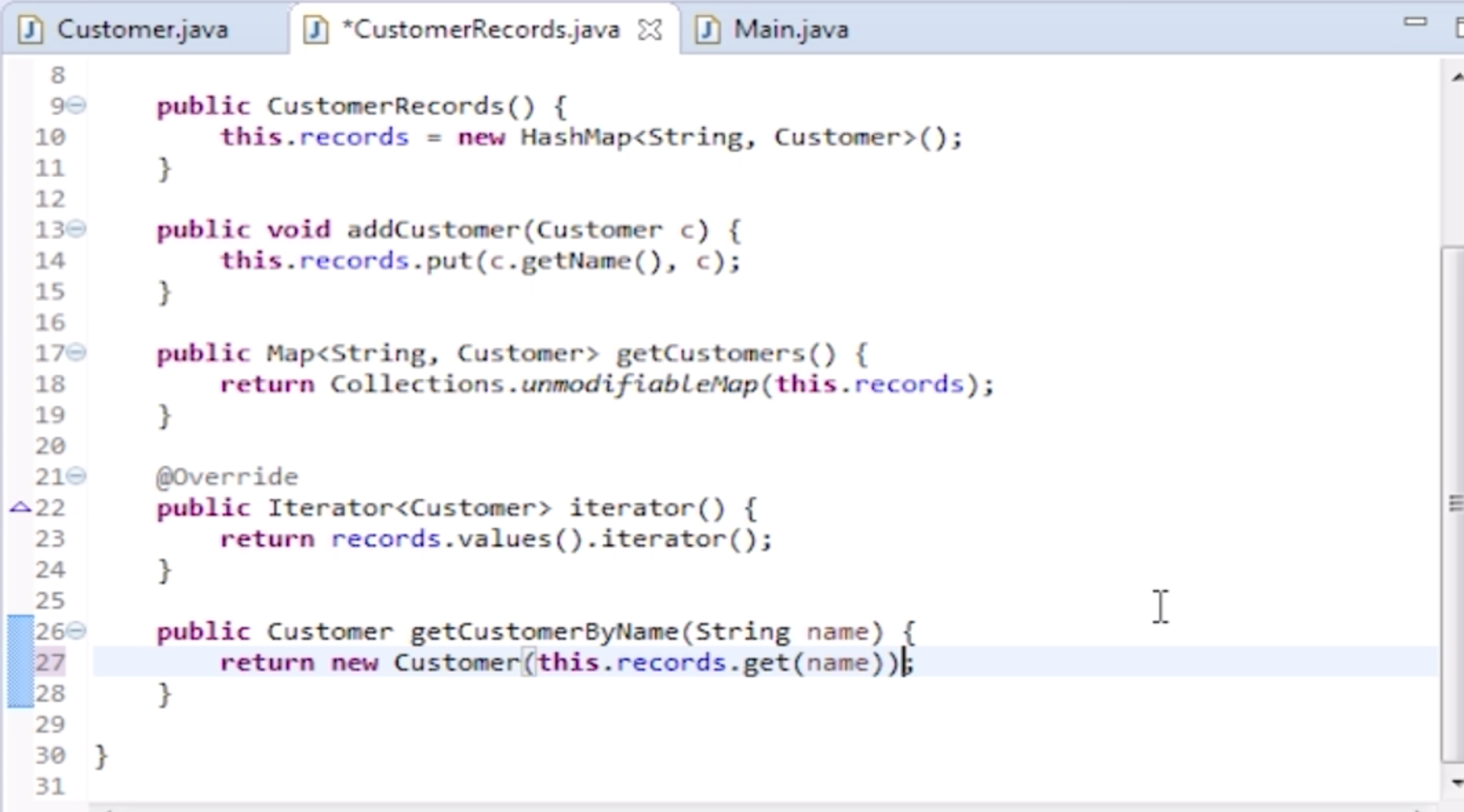Memory
Stack
- First in, last out
- Every thread has its own stack
- JVM know when to destroy stack(like after one function ends)

Heap
- all objects are stored on the heap
- object in heap that can shared across multiple threads
- variable are a reference to the objects
- local variables are stored on the stack
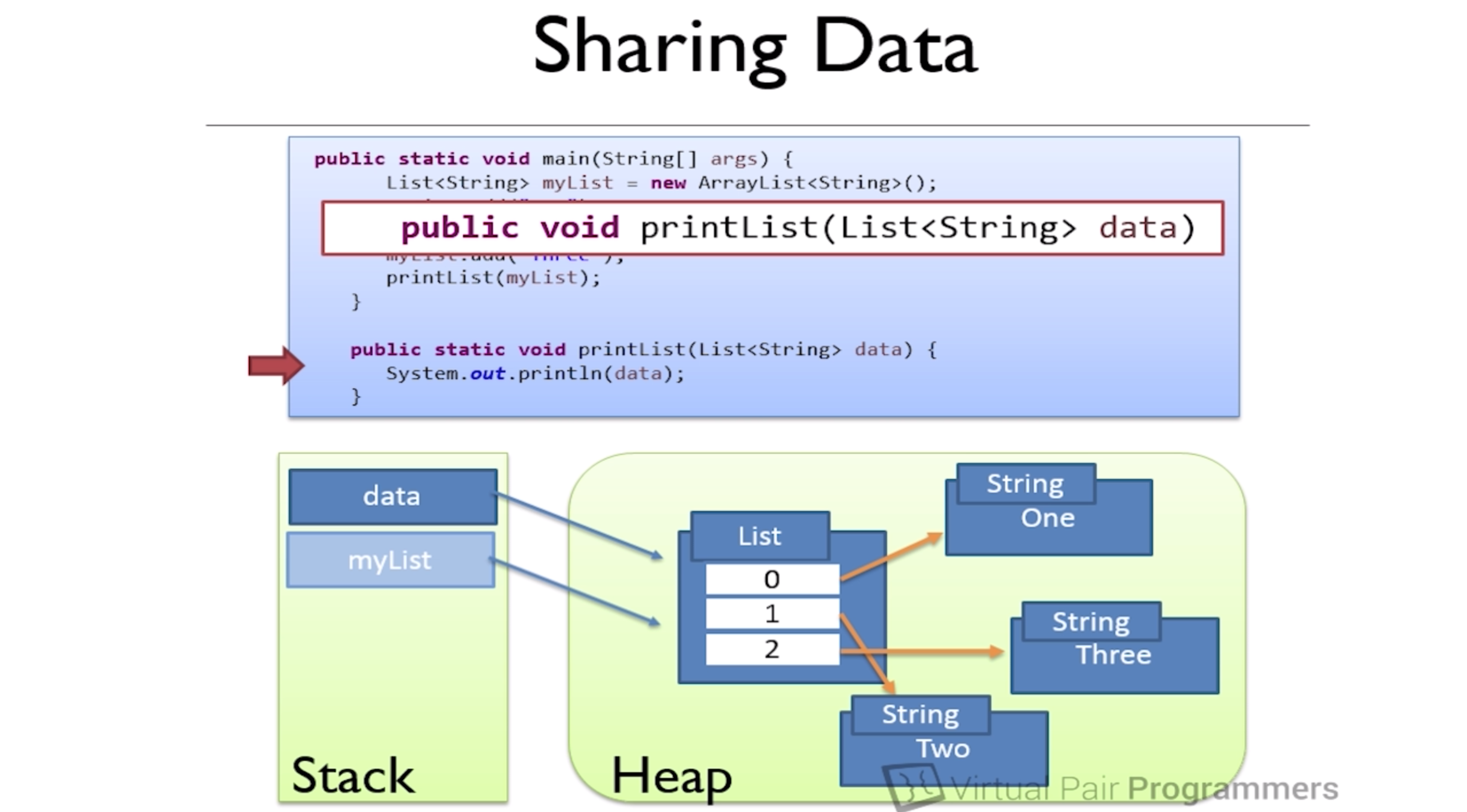
Pass by value
- For Primitives, pass by value
- For objects, the Reference to the object is passed by value(we are passing the copy of pointer, so it still points to that object)
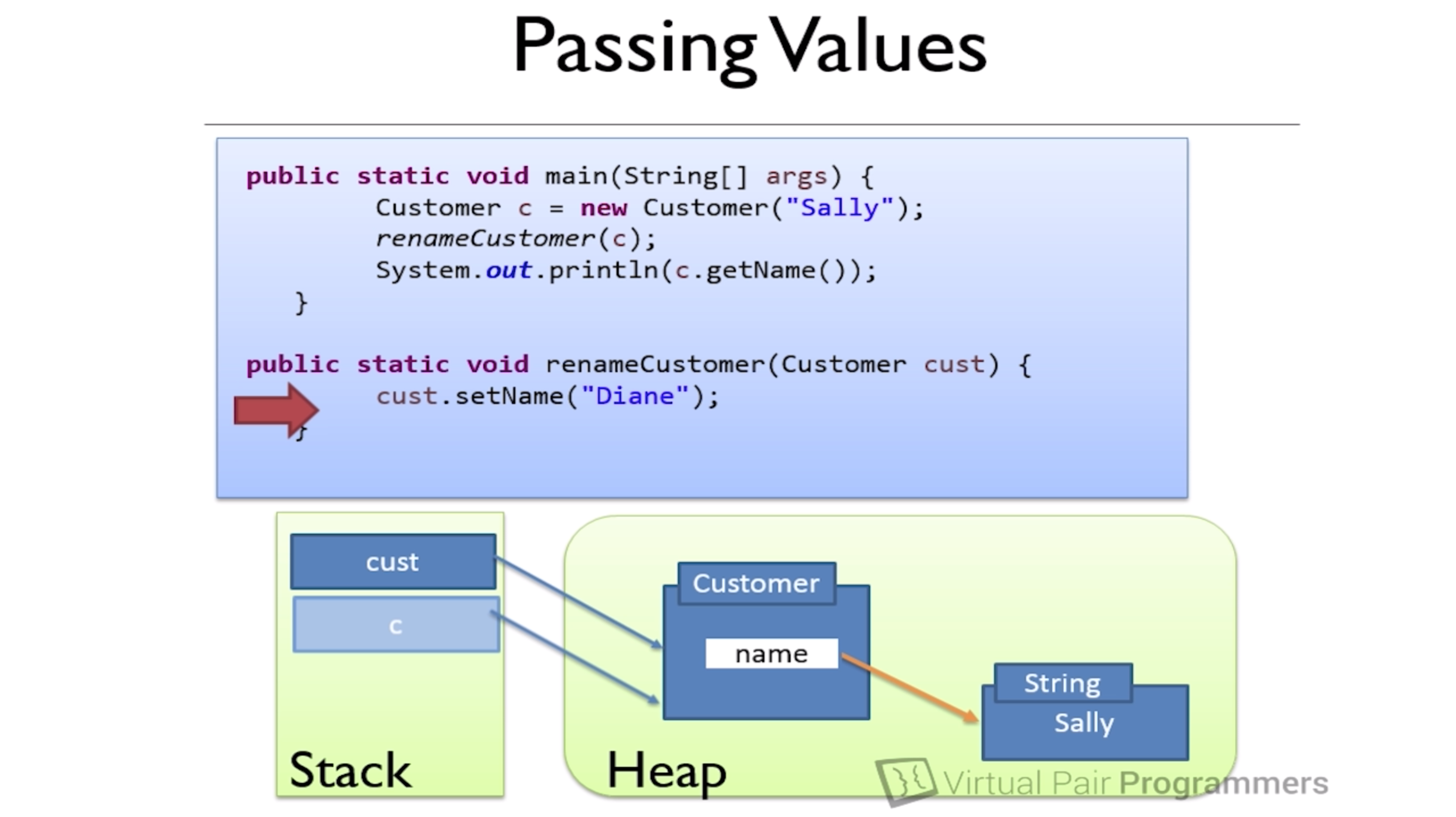
final keyword
- final, variable can only be assigned once
- is similar to const in C ``` final Customer c= new Customer("John"); c = new Customer("Susan"); //compile error
```
Escaping reference
- if we add
records.clear()at end of this code, then it will clear the records - it will work like this CustomerRecords is defined public instead of private, since we can direcly operate on them
- one solution is that we make this CustomerRecords directly iterable
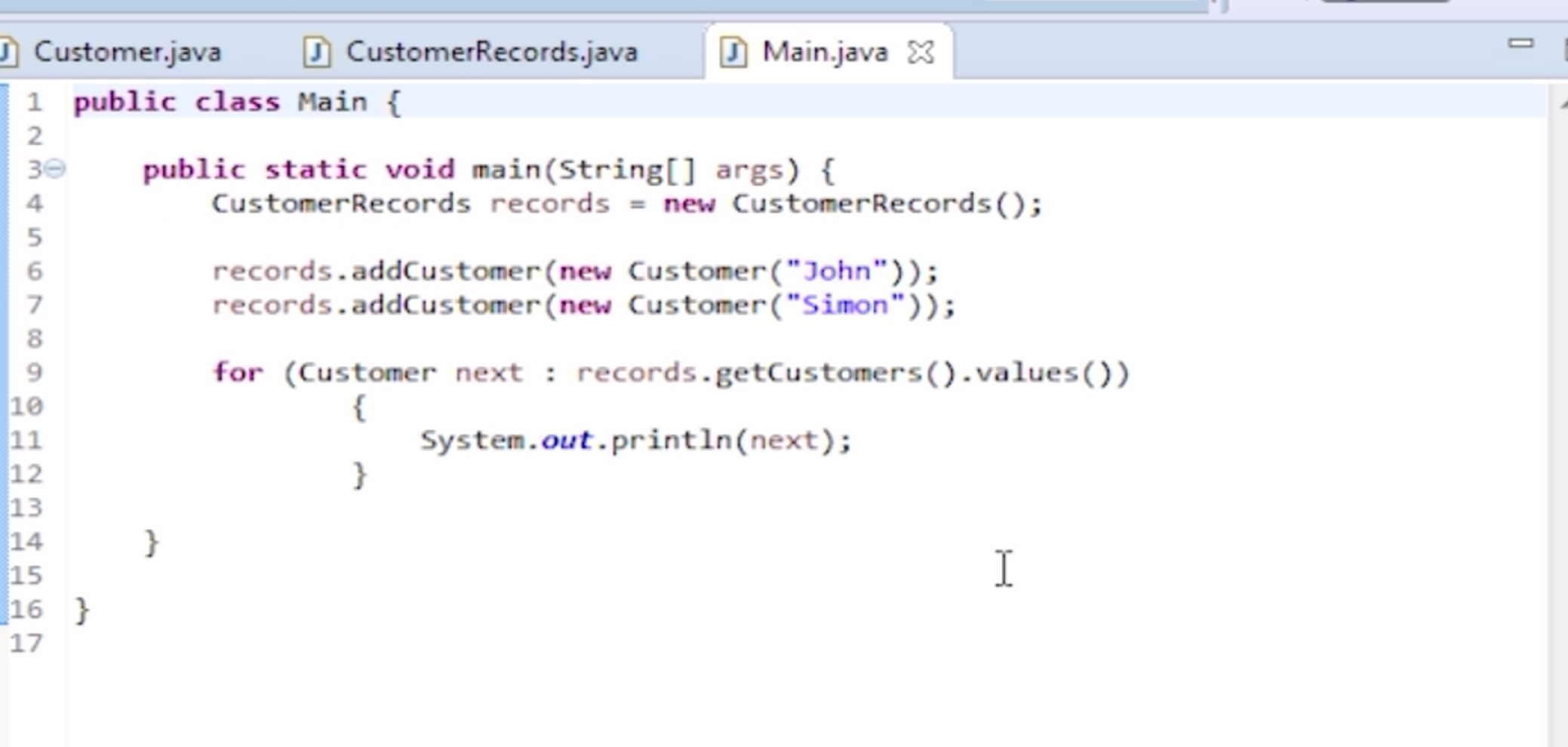
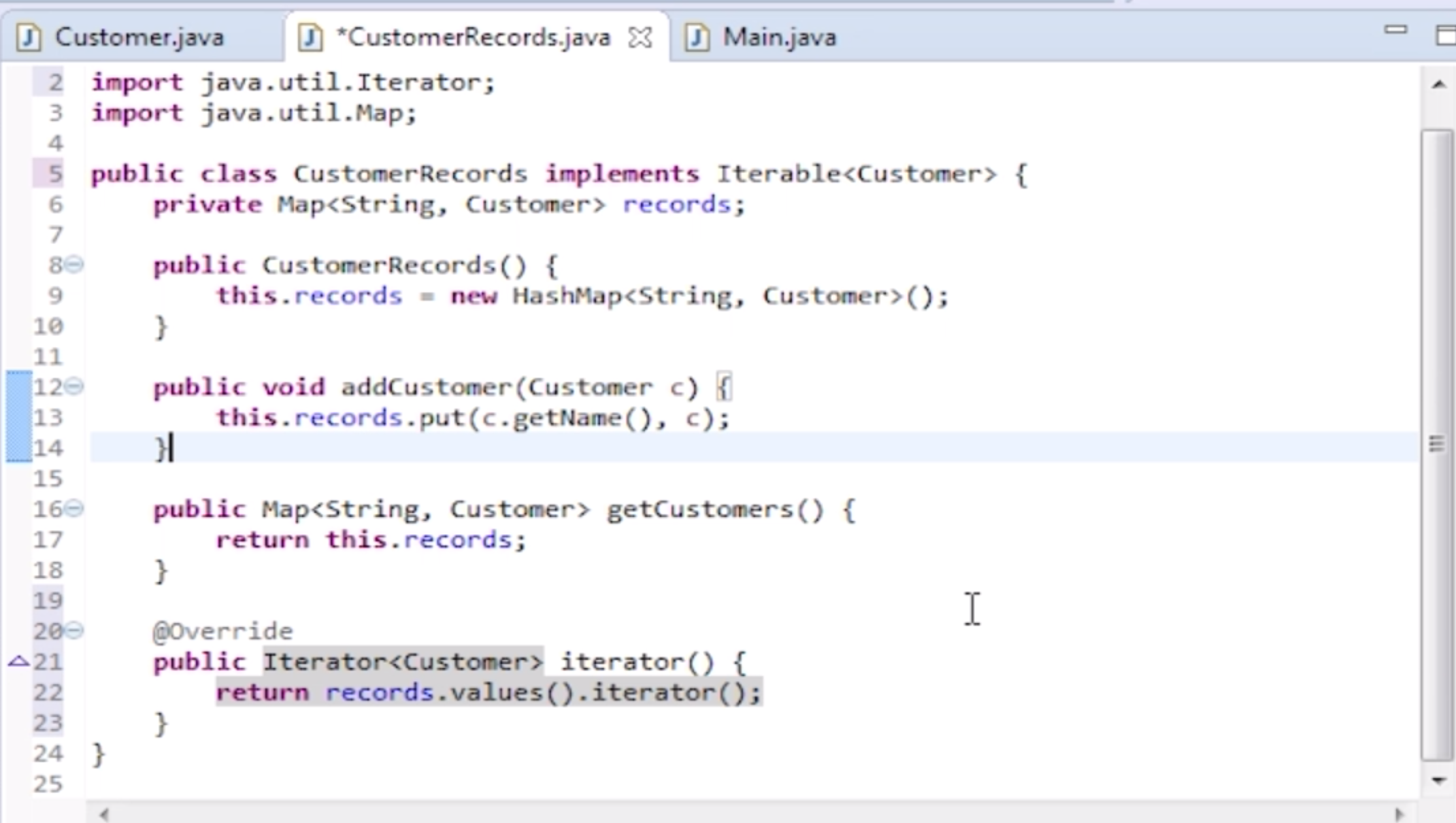
Better way
- Still, it's not perfect way since iterator also has a remove method
- a better way is to return a new hashmap using constructor like below
- then we are not allowed to edit original object without setter
- so even we do
records.getCustomers.clear(), it wont impact on original object
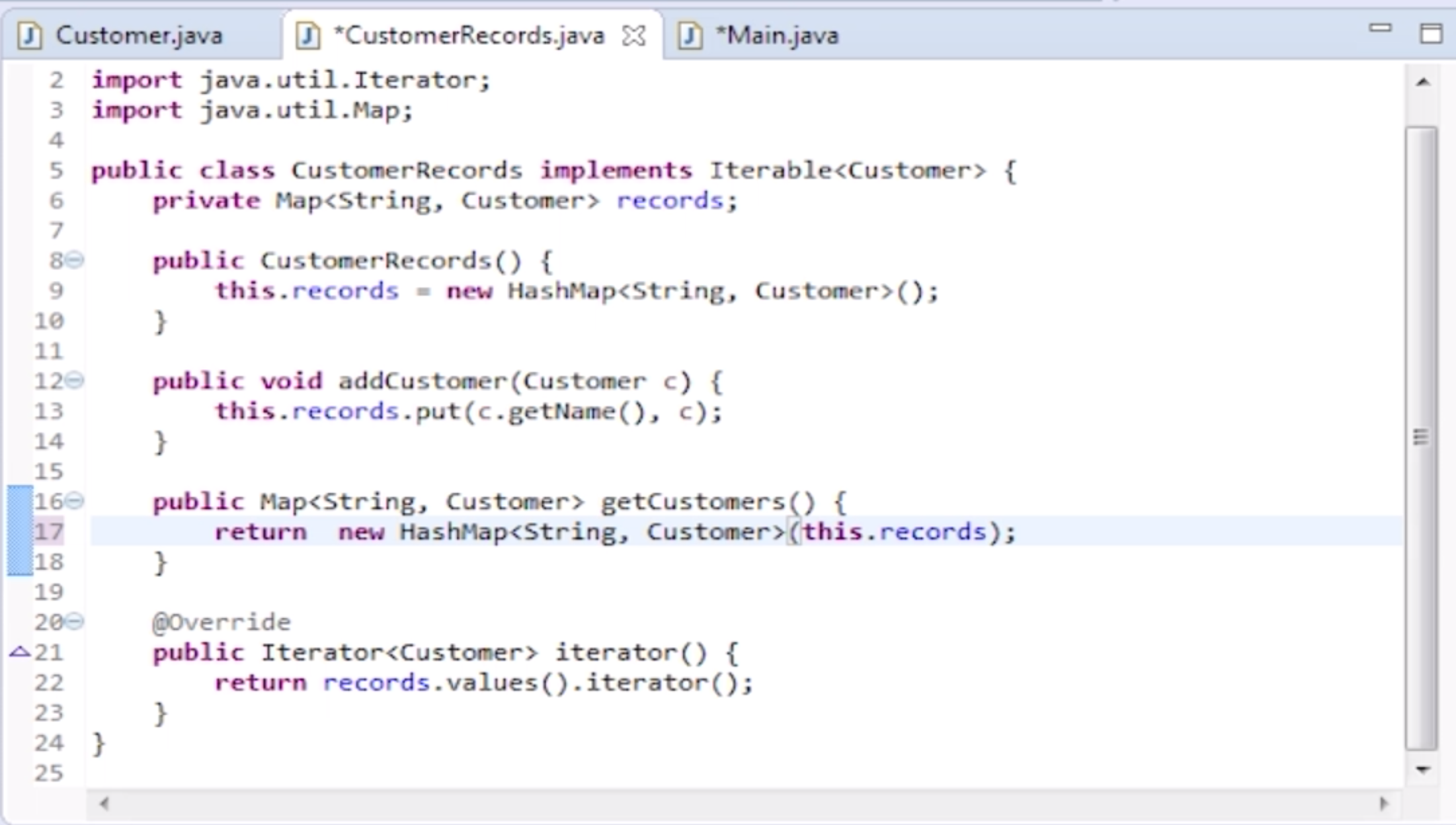
Improvement
- the safe way is to return immutable collections
- make it unmodifiable
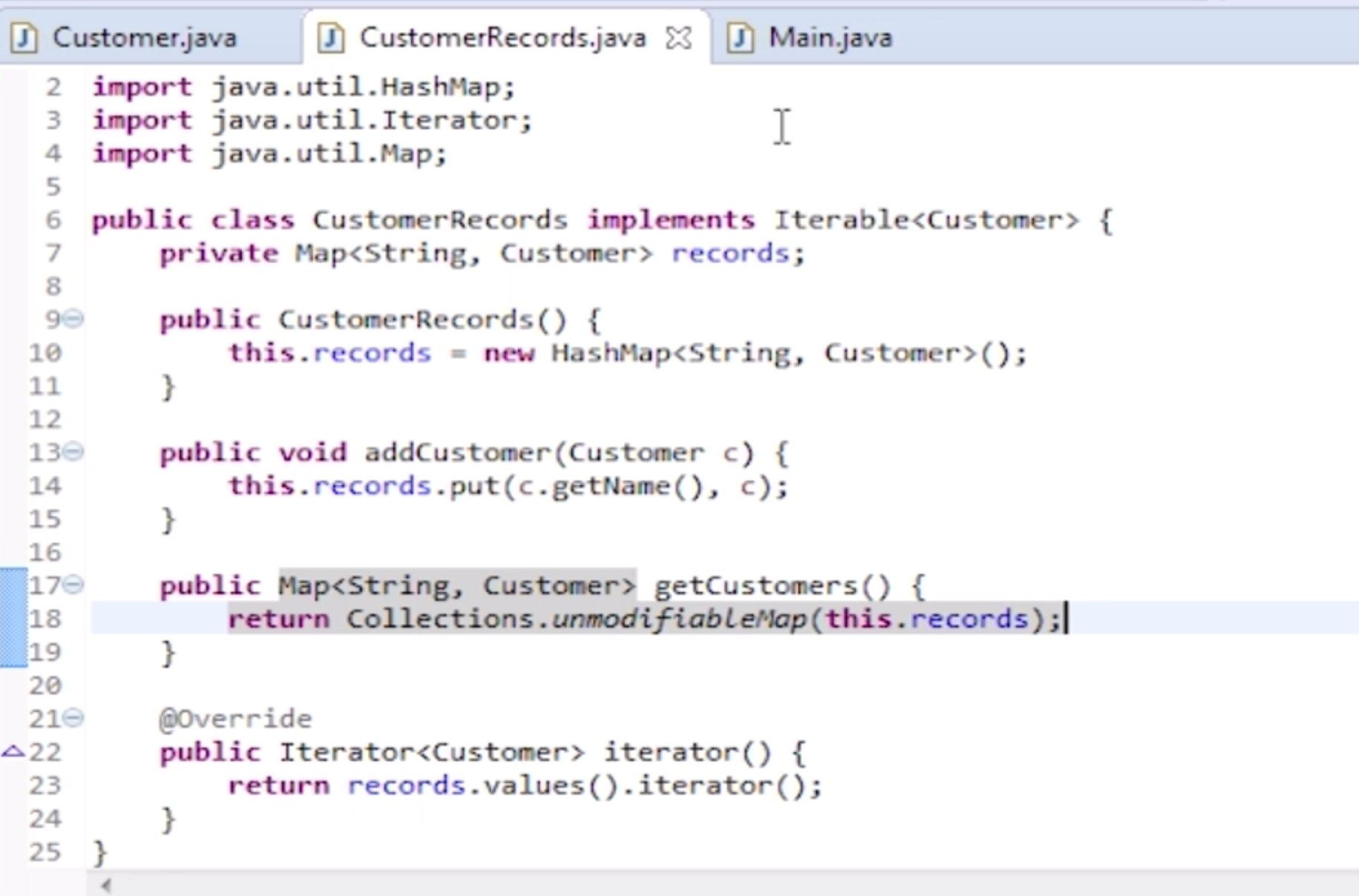
Addition
- not even return original objects
- give it a new constructor and return a new object so that no edition will be on original objects
